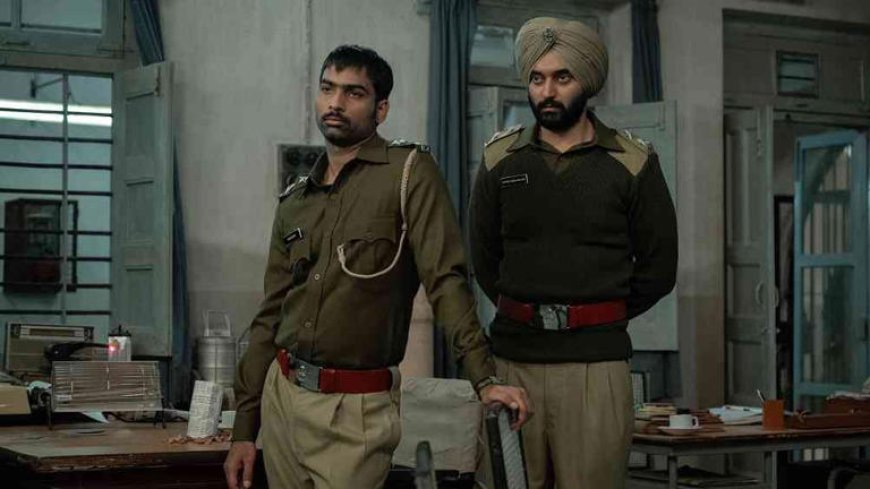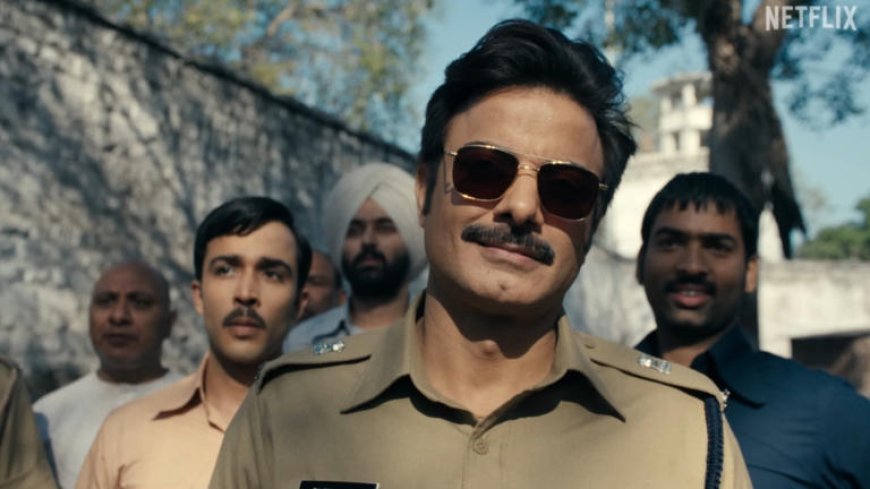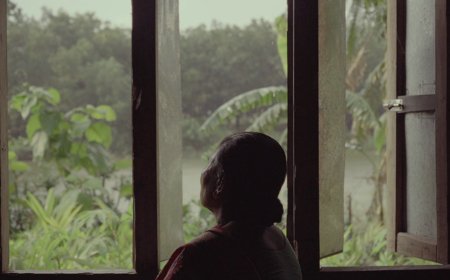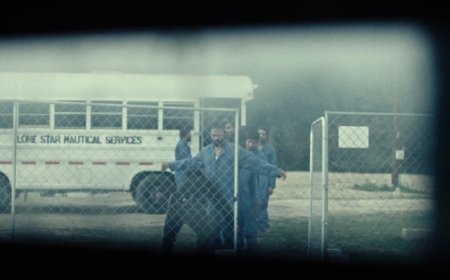BLACK WARRANT AND TIHAR JAIL
Dr. Shoma A. Chatterji writes a review on Black Warrant and Tihar Jail, a riveting seven-episode series directed by Vikramaditya Motwane.
Films centered on prisons are quite many within Indian and Hollywood cinema. But Black Warrant is different on many grounds. One, it is based on the book, Black Warrant: Confessions of a Tihar Jailer co-authored by jailer Sunil Kumar Gupta who retired as Superintendent of Prisons, Tihar, and journalist Sunetra Chowdhary. Two, it is directed by Vikramaditya Motwane, a filmmaker who has stood the test of time through his perspective on original themes and original stories. Three, it is perhaps one of the few OTT series if not the first, to be set entirely in Tihar jail (reconstructed by the production designer?) adding to a fictional story, that rare touch of reality narrated from the perspective of someone who has been an eye-witness through his evolution over time tracing the first few years of Sunil Gupta’s 35-year stint at Tihar Jail.
The series spread over seven episodes spills over with thrills, a bit of humour, irony, tragedy, human rights, the powerful-weak dilemma tilted against both the jail staff and the prisoners, unfinished relationships and so on. The series opens with Sunil Kumar Gupta’s (Zahan Kapoor) face-to-face interview for the job of ASP in Tihar Jail. He is taunted through the interview because he lacks the physique expected of a jailor, appears timid, diffident and nervous. He does not get selected. This, despite his being highly qualified for the post and having cleared the written test, the viva and knew he was selected. Then, a very young, handsome and suave man who speaks very good English with a strong, French accent mysteriously gets him the deserving post. When he enquires about this man, he is shocked to learn that this man is Charles Sobhraj (Siddhant Gupta) who gives an excellent account of himself in the minor role.
Sobhraj has a separate cell which does not look at all like a prison cell and has the benefits and comforts of an average hotel room, one wall plastered with news clippings about his murders and is given extraordinary treatment for a prisoner sentenced for several murders. This throws a hint about the power-corruption chain that sustains within the high walls of the prison which is as big as a small town and yet, some prisoners are caged in dozens within one cell and are deprived of the blankets scheduled for their use during the freezing winters. Yet, at a point of time, we are told that the Tihar Jail is actually run by the inmates and not by the administrators. This ‘running by inmates’ is a peep into the drugs and alcohol smuggling by the prisoners themselves with the jail superiors looking the other way because of the handsome ‘cuts’ they get from this illegal trade run by the prisoners themselves.
The story begins with the preparations for the hanging of Billa and Ranga for the killing of Sanjay and his sister Geeta Chopra in August 1978. Few of us are aware that later, both Billa and Ranga had withdrawn their confessions and claimed that the confessions were forced out of them. We see Ranga crying right through the walk to the gallows insisting that he was innocent and was forced by Billa to confess to the terrible crime of rape and murder. Billa, through his walk, keeps on asking for forgiveness from whoever he meets. While Sunil Gupta, witnessing the very first hanging in his life, throws up immediately after the hanging.
The flashbacks of the brutal killings and rape in the Billa-Ranga case are cinematographed in grainy Black-and-white which gives it a texture of a past and also softens the brutality. The hanging takes place in January 1982 and the series begins a little before this event. The experience toughens up Sunil Gupta a bit but his two colleagues, he comes very friendly with, Paramveer Cheema as the Sardar and Anurag Thakur as the Harianvi keep teasing Sunil for his very decent ways, his being a staunch vegetarian and non-drinker and most importantly, his complete failure to pepper his lines with choice invectives and cuss words, an integral part of the jail vocabulary both for the inmates and the administrative personnel.
Said Sunil K Gupta in a recent interview: “In India, around 82% of the prison population comes from underprivileged backgrounds and are reliant on legal aid advocates who are ill-equipped to handle their cases. In the Nirbhaya case, the four convicts did not have a strong legal defense which led to all the four being hanged simultaneously.” This is slightly incorrect because of the four, one was released on grounds of being a minor and sent for rehabilitation and reform. He adds that even in the Indira Gandhi assassination case, three killers were sentenced but Balbir Singh, who had Ram Jethmalani as his lawyer, was acquitted.
According to Sunil Gupta, “In the Nithari case, Surinder Koli and Moninder Singh Pandhe got off despite serious allegations because they were defended by prominent lawyers in the Supreme Court. If the death penalty is used as a deterrent, it is not working. There is an average of 78 murders a day. The SC recently started awarding sentences that mandate spending a significant portion of their life in jail. Such sentences, in my opinion, will have a far greater impact on the rate of crime than the death penalty.”
This statement by Sunil Gupta himself is substantiated by the aged Saini (Rajender Gupta), the jail accountant when he says, “most of the prisoners are under-trials behind bars for years with their cases not having reached the courts. Many of them are suspected of being innocent but have no means to fight their cases.” Sadly, the same Saini is falsely accused of corruption in order to save the actually guilty Head Jailor Rajesh Tomar (Rahul Bhatt) and his boss (Joy Sengupta) who have cut down on the number of blankets to be given to each prisoner and pocketed the difference themselves. The jail librarian is a doctor who hired two killers to have his wife killed for a meager sum of Rs.500. The two killers are hanged but the doctor gets to meet his lover secretly in the prison every week in exchange for a handsome agreement with the jail staff and the two killers. So, crimes are committed inside the jail walls both by the administrative staff of jail police and administrators on the one hand and by the inmates, many of them jailed for murder on the other.
Black Warrant is a brilliantly conceptualized and executed series that spans multiple layers of human nature and enterprise at several levels. The back stories of the major characters within the administrative staff are fleshed out quite clearly. For example, Tomar’s wife has walked out with their daughter and refuses to be talked towards reconciliation though the little girl is very fond of his father. Mukhopadhyay, the Jail Super (Tota Roychoudhury is brilliant) has a very unhappy married life. Cheema, the Sardar, becomes an alcoholic because his brother has become a rebel back home and the happy-go-lucky Harianvi guy was having a torrid affair with Mukhopadhyay’s wife. When the super goes away for a transfer to veer away from a scandal, his wife boldly walks up to the Harianvi, embraces him in front of everyone and quietly walks back to her husband’s car. Sunil Gupta’s girlfriend Priya leaves him in the end and the reason may be traced back to his profession. Sunil Gupta’s family life is ordinary, middle-class with an overfriendly neighbor (Anubha Fatepuria) who keeps on begging Sunil to bring him some jail food which he constantly denies her and gets to know the reason much later.
Technically too, the series is very impressive and impactful. The struggles of the prison inmates and the constant fights between the two leading ‘gangs’ within the jail are brought across well. The music and the sound design are excellent and so is the razor-sharp editing which cuts through the scenes like a sharp knife but softens in the scenes within Sunil’s middle-class home.
The young lady doing her Ph.D. on some of the inmates falling in love with her ‘friend’ convicted for murder, is perhaps the only sub-plot which smells of something quite filmy. Zahan Kapoor as Sunil Gupta comes out with the most outstanding debut-performance as he slowly grows from a diffident, slightly scared and shy jailor to a maa-behen gaaliwala, hardened jailor who learns to down a drink or two, much to the pleasure of his two close colleagues. The tragic struggles of the prisoners where there are already three gangs at war with each other are shown beautifully including a scene in which Sunil is beaten black and blue by the prisoners and is admitted to the jail hospital. The series ends on a dramatic note marked by the jail-break of Charles Sobhraj who leaves behind a picture postcard stating “Tata” and signing it himself.
Sunil, however, brings radical changes in the prison environment by the time the series ends on an open note without being judgmental about anything or anyone. The series tries to explain the mystery behind the judge’s breaking the nib of his pen after signing any death sentence in various ways right through the film without coming out with a definite and acceptable answer till the end.
The last word belongs to Sunil Gupta who says, “In 35 years of Tihar, I’ve observed that corruption outside reflects inside. Typically, influential prisoners get privileges like more visitor access, food from home, TV, private medical treatment etc. Ordinary prisoners making simple demands risk punishmene, even beatings.” (Times of India, 26th January, 2025.)
*****
What's Your Reaction?



































































